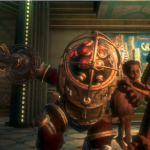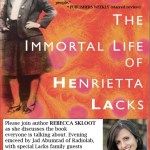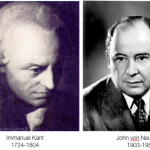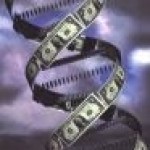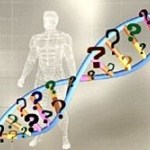Bioethics
Remember Dario Ringach?
He's the scientist who has endured a prolonged campaign of harassment because of his animal research. I first heard of him in 2006, when, after a campaign of threatening phone calls, people frightening his children, and demonstrations in front of his home, gave up doing primate research. Terrorism and intimidation worked, but who could blame Dr. Ringach? He was afraid for his family. That's because it was more than just threatening e-mails and phone calls, but rather the campaign of intimidation included masked thugs banging on the windows of his house at night,…
I must admit that I never saw it coming. At least, I never saw it coming this fast and this dramatically. After all, this is a saga that has been going on for twelve solid years now, and it's an investigation that has been going on at least since 2004. I'm referring, of course, to that (possibly former) hero of the anti-vaccine movement, the man who is arguably the most responsible for suffering and death due to the resurgence of measles in the U.K. because of his role in frightening parents about the MMR vaccine.
I'm referring to the fall of Andrew Wakefield
Wakefield has shown an incredible…
The news is finally filtering out to the rest of the world. As I pointed out a few days ago Dr. Steven Laureys admitted that Rom Houben, the unfortunate victim of a car crash that left him in what had been diagnosed as a persistent vegetative state, was in fact not able to communicate through the woo known as facilitated communication. This came as no surprise to anyone who has followed FC over the years. In fact, what had come as a surprise is that Dr. Laureys could have been so easily taken in by pseudoscience that had been so thoroughly debunked in the 1990s. To his credit, though, after a…
A couple of months ago, I wrote about a case that demonstrated conclusively just how easily even respected researchers can be taken in by psuedoscience. Of course, I was not alone. A number of others, including Steve Novella, James Randi, bioethicist Art Caplan, Hank Schlinger, and myself, recognized the reports that a Belgian man named Rom Houben, who had been in a coma for 23 years, was actually conscious and could communicate with the help of a "facilitator" named Linda Wouters was in fact nothing more than the example of the quackery known as facilitated communication. This is a…
Today's Baltimore Sun features a great OpEd by Ruth Faden, director of the bioethics institute at Johns Hopkins, exploring the ethical and moral issues raised by The Immortal Life of Henrietta Lacks, and its relevance to the current debate over health care reform. In it she says, among other things:
... Henrietta Lacks story touches the very heart of the
current debate over health care reform, and the need for universal
coverage and access to care. Her tale, like health care reform and the
ethics of biomedical science, is tied up in how the least of us live.
We need a national…
BioShock2 came out a couple days ago, the sequel to the wildly successful video game BioShock. BioShock is a first-person-shooter video game set in Rapture, an underwater city overrun by violently insane genetically engineered mutants called "Splicers", creepy zombie-like girls, "Little Sisters", that harvest corpses for "ADAM"--sea slug stem-cells that provide super-human strength, regenerative powers, and the ability to rewrite the human genome with the injection of "plasmids"--and genetically engineered "Big Daddies" that protect them, mentally blank superhumans grafted into enormous…
Synthetic biology is still a new field, and victories are small and incremental. Much of the promise and peril of synthetic biology still lies in the future: genetic devices made to order, computer aided genome design, organisms specially constructed for specific industrial purposes. Will we use this biological technology for good--new more affordable and accessible drugs, better vaccines to emerging diseases, and clean energy--or evil--new deadly pathogens and immortal super soldiers? I think it's safe to say that almost everyone hopes that we'll get all of the good stuff without any of the…
After ten long years, the serious countdown has begun for the publication of my book, The Immortal Life of Henrietta Lacks, which will be on sale nationwide exactly SEVEN DAYS from today. I've been posting about my impending book tour, and all the great coverage the book has been getting, on Twitter and Facebook, but thought I'd also post a bit of a press round up here, and an update, for those who (gasp) don't spend all of their time in those places.
If you don't know what my book is about: it tells the story of a poor black tobacco farmer whose cancer cells -- taken without her…
I've been meaning to post about this for several weeks, but as we all know, things have been a weee bit hectic. But now, finally: News on the informed consent for using tissues in research front.
Since the 1960s, US law has mandated that all newborns be screened for
genetic diseases. What most people don't know is that those samples
are often stored and used in future research without the knowledge of
the parents (or, obviously, the children). I write about this in the afterward of my book, which is of course directly related to this issue.
For decades ethicists, scientists…
Cooperation and altruism are widespread in biology, from molecules and genes working together in a cell, to bacterial communities that require coordinated behavior to survive in a tough environment, to human relationships and societies. Our human cultural perspective (perhaps even more specifically our American cultural perspective, focused as it is on individuality, free markets, and the American Dream), however, treats cooperation as an outright anomaly that has to be explained away by science (or often, religion). If natural selection is about the "survival of the fittest" how can a…
Are you in New York? Anywhere near New York? If so ... mark your calendars and come join us for the PUBLIC BOOK LAUNCH EVENT we've all been waiting for (well, at least we here at Culture Dish have been waiting for it ... plus a few other folks): In an evening emceed by Jad Abumrad of RADIOLAB, I'll be talking about my new book, The Immortal Life of Henrietta Lacks ... and rumor has it, some of Henrietta's family members will be there with me to answer your questions and SIGN YOUR BOOKS! Also, we will have live HeLa cells for people to see. So much excitement, we can…
Many synthetic biologists cite one of Richard Feynman's many famous quotations as the inspiration for their work: "What I cannot create I do not understand." For synthetic biology the interpretation is clear--only by designing and building living systems will we truly understand the principles underlying the functions of living cells.
This connection between knowing and making that defines much of synthetic biology research today is, however, a much older idea, rooted in the philosophy of the enlightenment and centuries of western science. The 18th century philosopher Giambattista Vico said…
I couldn't resist that title, but I must admit it isn't mine; the
author's post is
href="http://pasadenasubrosa.typepad.com/pasadena_sub_rosa/2009/12/let-them-eat-antipsychotics.html">here.
This is about the NYT article about the finding that children on
Medicaid are more likely to be prescribed antipsychotic medication,
compared to those with private insurance. The obvious correlation
is that children with Medicaid are from poor families, whereas those
with private insurance are from families that have more
resources.
It is one of those studies that documents an…
On Friday, I wrote a post about the 20th anniversary of my PhD dissertation defense and my reverence for Henrietta Lacks, the woman whose cervical cancer gave rise to the first immortalized human cell line and the primary system for my work. I also alluded to The Immortal Life of Henrietta Lacks, the upcoming book by Rebecca Skloot that is already garnering extensive pre-release praise.
I was, as readers have come to expect, quite a bit sentimental and reflective, with a call that we all do our part to somehow acknowledge those patients whose tissues make it possible for us scientists to do…
Big week here at Culture Dish! The Immortal Life of Henrietta Lacks and its author (yours truly) were on the cover of Publishers Weekly (please note: THRILLED!). Inside that issue was a profile of me with some of book's backstory, a short excerpt from the book (longer excerpt coming soon in O, the Oprah Magazine), also a story I wrote about the crazy book tour I'm organizing (posted about previously here). But that was just the beginning of this week's HeLa developments. More about that after the jump, but first, a warning: given the fact that my book is about to be released and…
Twenty years ago this morning, I had to defend a body of work that contained this paragraph on page 24:
HeLa cells are a human cervical carcinoma cell line having a doubling time of 24 hr and were obtained from Dr. Bert Flanegan, Dept. of Immunology and Microbiology, University of Florida. HeLa cells were maintained as subconfluent monolayer cultures in minimal essential media (alpha modification; GIBCO) with 10% fetal bovine serum (GIBCO) at 37° under a humidified atmosphere containing 5% CO2. Cells were maintained in logarithmic growth by subculturing every other day using 0.05% trypsin/0.…
Hella HeLa!
Skloot is PWned, as it were.
I learned late last night that author Rebecca Skloot was to be featured on the cover of this week's issue of Publishers Weekly. So, I clicked on the site this morning before the coffee was even done brewing and there is our wordsmithing hero.
I know that "The Making of a Bestseller 2010" is sure to make any author nervous but my reading of the manuscript tells me that the prediction is entirely consistent with the work.
Regular readers will know that we featured Ms Skloot here last week to brainstorm about her upcoming, self-supported book tour…
Calling all academics: If you'd like a free advanced copy of my book, The Immortal Life of Henrietta Lacks, get thee to Random House's academic blog and request a copy quick, while supplies last (which probably won't be long at the rate things are going). See below for more information on the book, and advanced praise. Added bonus: If you teach the book this spring, you can also get me to come speak at your school/in your classes as part of my book tour.
Here's Publishers Weekly on The Immortal Life of Henrietta Lacks:
Science journalist Skloot makes a remarkable debut with
this multilayered…
Some interesting news about the breast cancer patent lawsuit I wrote about for Slate's Double X Magazine a few months ago: A federal district court has just agreed to hear the case. When the lawsuit was first filed, many legal experts I talked to said they were sure the case would get thrown out of court for it's unusual approach, namely that it claims that the practice of patenting genes is unconstitutional See my story about the case here. Filings and other documents related to the case available here. And see below for the full press release about today's news:
Court…
Inside Higher Ed just reported that an adjunct instructor at the University of Akron quit when he was told that he had to submit to DNA testing. "It's not enough that the university doesn't pay us a living wage, or
provide us with health insurance," the instructor said, "but now they want to sacrifice the
sanctity of our bodies. No." He was right to question their policy: The Genetic Information Nondiscrimination Act of 2008 specifically states:
It shall be an unlawful employment practice for an employer to fail or refuse to hire or to discharge any employee, or otherwise to
discriminate…
